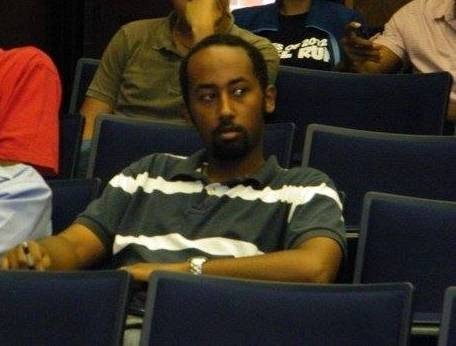University of Mississippi
A University of Mississippi civil engineering doctoral student’s research into the early detection of dam and levee problems has launched him onto the national and global stage.
Leti Wodajo of Addis Ababa, Ethiopia, has been conducting research in applications of geophysics and geotechnical engineering since becoming a master’s student at Ole Miss. His academic prowess and scholarly presentation yielded him an invitation to present a paper at the Symposium on the Application of Geophysics and Environmental Engineering Problems (SAGEEP) meeting in April in Boston.Ethiopian Leti Wodajo – University of Mississippi
“We submit our abstract, and session committees will review it and notify us if it is accepted for presentation,” Wodajo said. “Over 200 technical papers were presented, including oral and poster presentations. It was a great opportunity to know what is being done in the world of geophysics and its application. It also gave me a great chance to talk to and to learn from distinguished professors in the field and professionals in the industry.”
A few weeks later, Wodajo received an email informing him that his paper, titled “Enhancement of SRT and ERT Interpretations Using Time-Lapse Measurements and Cross-plot Analysis,” was voted on the evaluation ballots as one of the best delivered at the conference. As a result, the organization has invited Wodajo to attend the Near Surface Geoscience Division of the European Association of Geoscientists and Engineers meeting, set for Sept. 14-18 in Athens, Greece, to deliver his paper.
Wodajo has accepted the invitation and begun preparing to attend.
“I was really excited by the news,” Wodajo said. “My hope is it will be a great learning experience and that I will receive insightful comments to help improve my work.”
For the past several years SAGEEP have been exchanging the “Best Of” papers with the NSG/EAGE Division in Europe. SAGEEP is covering Wodajo’s delegate badge and gala ticket. Airfare, hotel accommodations and meals are his responsibility.
It is an honor and a worthwhile investment in his future success as a scientist, UM engineering faculty members said.
“This is a great platform for us to present our work and also to learn from the European geophysical society,” said Chung Rak Song, associate professor of civil engineering and Wodajo’s academic co-adviser.
Craig Hickey, interim associate director of applied research at the National Center for Physical Acoustics at UM and Wodajo’s research co-adviser, concurs.
“Only four papers out of the 160 oral presentations were selected to attend the Greece meeting,” Hickey said. “So it is a great recognition to the collaborative work we do at the National Center of Physical Acoustics and the civil engineering department and also a validation to what we are contributing.”
Wodajo earned his bachelor’s degree in civil engineering from Jimma University in Ethiopia and a master’s degree in civil engineering from UM. His brother, Bikila Wodajo, received his doctoral degree from UM before him.
“That is how I first heard about the university and their civil engineering program,” Wodajo said. “He encouraged me to apply and got me in touch with Dr. Song and Dr. Hickey. I was able to communicate with them and find out the different types of research they do. I was also offered a generous scholarship covering the whole length of my study, which made my decision easy.”
Previous honors and awards include memberships in Phi Kappa Phi, the American Society of Civil Engineers, the Environmental and Engineering Geophysical Society and Mississippi Academy of Science.
After graduation in 2015, Wodajo’s long-term plan is to return to Ethiopia and assume a faculty position, continue doing research and also teach while being involved in the industry as a consultant.
“But in the short term, I would like to be able to stay for a while and do a post-doc and work on different projects,” he said. “This will help me further the work I am doing now and gain experience on the overall aspect of running a research program, starting from proposal preparation to project management and fund allocation.”
